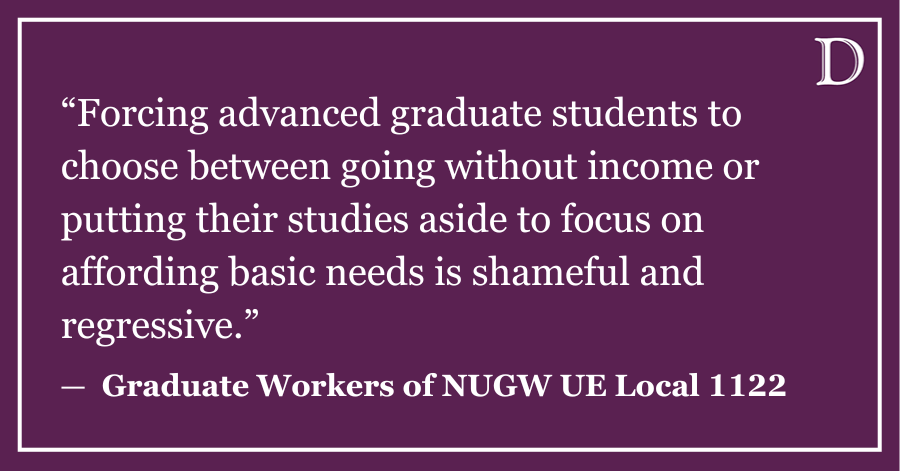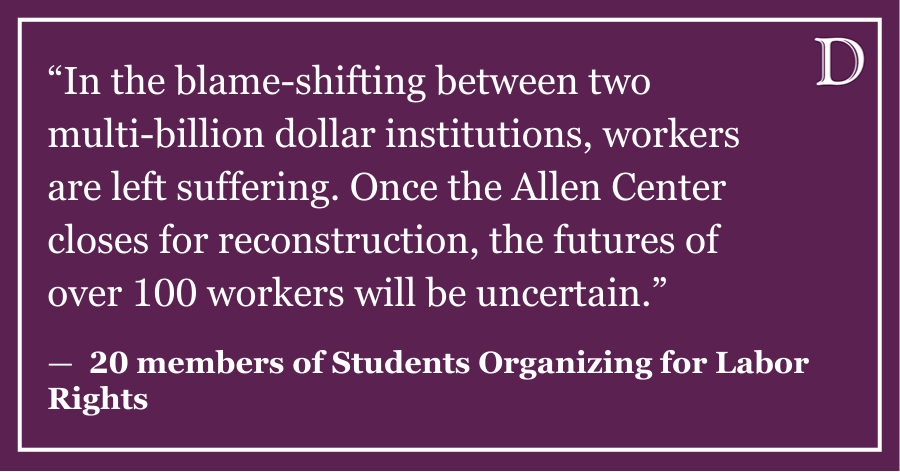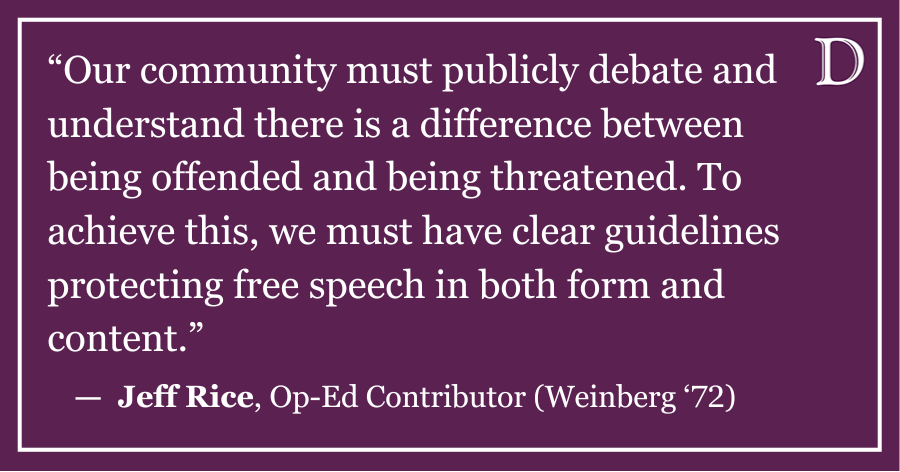Last week, President Morton Schapiro co-authored an article in the Wall Street Journal titled “We Didn’t Sign at the Office” vowing to neither sign onto nor answer petitions.
We understand that the “the number of signatures or media attention” a petition receives doesn’t necessarily reflect the importance of the issue. After all, just a few months ago a petition demanding the U.S. government construct a Star Wars styled Death Star received more than 34,000 signatures, prompting an official White House response.
But to veer in the complete opposite direction and refuse to consider any petitions misses the simple fact that many petitions do reflect well-researched policy demands. For example, the national fossil fuel divestment campaign — which many of us were disappointed to see President Schapiro and his co-author explicitly target in their article — is based on the overwhelming scientific consensus around climate change and the urgent need to mitigate it. If this doesn’t reflect decades of “serious thought and discussion,” then few issues do.
Confronting climate change requires more than just thought and discussion though — it requires action. When the United Nations warns that climate change could push three billion people into extreme poverty by mid-century, Northwestern students take action to reduce our personal carbon footprint, we take action to align our careers with sustainable industries, and we take action to ensure we have responsive and effective political leadership. Northwestern cannot claim leadership in social responsibility or sustainability while it continues to invest its endowment in coal, oil and gas companies.
There are cases where decarbonization is not immediately possible — for example, when we fly home to see our families or buy produce grown in other states. However, when we have a feasible alternative, we have the responsibility to make a moral choice. In the financial markets, there are many profitable investment opportunities. The Northwestern Responsible Endowment Coalition seeks to divest our endowment from fossil fuel companies, whose core activities are producing fossil fuels or burning coal for power. That money could be reinvested in healthcare, in clean technology, or in any other way the Investment Committee sees fit. Our goal — fossil fuel divestment — does not seek to eliminate any company “dealing with fossil fuels,” as this would be nearly every company on the planet. Rather, it seeks divestiture from companies whose business models are fundamentally incompatible with a stable climate.
Just because an idea or an opinion is expressed through a petition doesn’t make it any less important or serious, and there is nothing more serious or urgent than the issue of climate change. It is careless to dismiss an idea simply because it is expressed through a medium that someone may regard as inadequate, especially when it is supported by a large portion of the community.
The truth is that petitions, along with other long-used forms of democratic engagement, force institutions to take a stand on an issue. President Schapiro and his co-author quote former Princeton University President Bill Bowen who states “neither individuals nor educational institutions should be compelled to take a position on every issue that others regard as highly consequential.” Yet choosing not to engage on an issue — especially one as pressing as climate change — is taking a stand for something else: the status quo. Northwestern has a tremendous social, economic, and environmental footprint. Our status quo remains in direct conflict with our Strategic Plan, the document that lays out, in the words of President Schapiro, “where we plan to invest our resources and why. We look to you, the members of our community, to turn the plan into action by thinking creatively.”
The Divest NU campaign has produced this sort of creative engagement of the entire Northwestern community. If President Schapiro takes seriously the dictum of our Strategic Plan to “contribute to the solutions for renewable energy and a sustainable environment and to how public policies and economic incentives promote implementation of new technologies and practices”— he must take seriously Divest NU. The Faculty Senate and the Associated Student Government of Northwestern have both endorsed fossil fuel divestment. We do not ask for a mere signature, President Schapiro. We ask for your action.
Respectfully,
Mark Silberg, Weinberg junior
David Snydacker, McCormick PhD Candidate
Paige Humecki, McCormick senior
Brian Lange, McCormick junior
Ankur Asthana (McCormick ’11)
Renee French, Weinberg PhD Candidate
Matthew Goldrick, linguistics professor
Christiane Rey, French professor
Robert Whittier, director of sustainability












